 Your new post is loading...
 Your new post is loading...

|
Scooped by
Robin Good
March 31, 2014 8:02 AM
|
When you’re doing your site's SEO, you have to be careful. The techniques that used to work will now get you penalized. The techniques that used to be a w

|
Scooped by
Robin Good
October 4, 2013 10:55 AM
|
Rand Fishkin talks about Google's motivation behind their encryption.

|
Scooped by
Robin Good
September 24, 2013 10:33 AM
|
In the past month, Google quietly made a change aimed at encrypting all search activity — except for clicks on ads.

|
Scooped by
Robin Good
August 14, 2013 11:29 AM
|
Today, Ebyline proudly presents an exclusive interview with John F. Doherty, head of Distilled New York, founder of HireGun, international speaker, blogger, and photographer.

|
Scooped by
Robin Good
July 6, 2013 12:48 PM
|

|
Scooped by
Robin Good
June 17, 2013 3:56 PM
|

|
Scooped by
Robin Good
May 3, 2013 6:22 AM
|
Traffic from Google to digital publishers dropped 30% over the past eight months.

|
Rescooped by
Robin Good
from SEO and Social Media Marketing
July 3, 2012 2:51 AM
|
From the original article: "In the biggest study of its kind, we have found that there is strong correlation between the amount of tweets about a URL, and its Google ranking. Key Stats:
1) Study shows that URLs receive a significant boost in Google rankings when they are shared on Twitter 2) The effects of this boost seem to level out at around 50 tweets, and the subsequent benefit of gaining additional tweets is minimal until around 5,000 tweets 3) After 5,000 tweets the average ranking of URLs improves considerably
URLs receiving over 7,500 tweets almost always rank inside the top 5 results 4) Average rankings are heavily correlated to the number of tweets about each URL".
You better read it. 8/10
Full article: http://www.branded3.com/tweets-vs-rankings
Via Antonino Militello
From the original article: "SEO strategies have gone through incredible amounts of evolution over the last year. From algorithm updates like Penguin and Panda to new search engine restrictions on overoptimization and spammy links, optimization methods for getting the best rankings in search engines all across the web have advanced. The recent power of social sharing has had a huge effect on search, and search engine company recommendations to get the best rankings in their search engines have changed as crawl tactics are getting smarter.
SEOs of all levels have had to re-learn strategies and best practices to make sure their website’s SEO is set up for winning results. The newly updated Beginner’s Guide to SEO is bursting with new changes, but here are some top additions to keep an eye out for: ***Home-grown SEO is a trend that is catching on, but there’s a lot to learn to make sure your site’s SEO is up to par. Whether you’re considered using a consultant, firm, or learning SEO on your own, this new section is a must-read. ***Building for Users, Not Search Engines: This awesome new section highlights three ways people look for information through search queries fitting into the categories of Do, Know, and Go. What are users looking for? ***The Last Chapter is packed full of new recommendations on metrics to track, analytics software to implement, metrics provided by search engines to use, and tips to applying the data you track towards real life solutions..." Read the full article here: http://j.mp/LI7qUi Full guide: http://www.seomoz.org/beginners-guide-to-seo
Via Giuseppe Mauriello

|
Scooped by
Robin Good
May 11, 2012 2:13 AM
|
Robin Good: Good article by Meghan Keaney Anderson on the HubSpot Blog. If you are somewhat new to SEO and to optimizing your web site, here's a simple and well illustrated six-step process that can you can follow.
"When it comes to getting your website found in search, little things can make a big difference. But sometimes it's hard to find the time -- or know where to start.
Here's an idea: Set aside 15 minutes in the next week to conduct an audit of what you think are 5 of your most influential web pages.
Then audit those pages with the following six steps to make sure you have all your SEO bases covered."
Here the six steps suggested (get the details on how to carry out each one in the original full article):
Step 1: Check Your Meta Descriptions
Step Two: Review Your Page Title
Step 3: Optimize Your H1 Tags
Step 4: Make Images More User/Search Friendly With Alt Text
Step 5: Optimize the Anchor Text of Your Links
Step 6: Leverage Calls-to-Action"
Informative. Very useful. 8/10
Read more: http://blog.hubspot.com/blog/tabid/6307/bid/32777/The-6-Step-SEO-Audit-Every-Marketer-Should-Conduct.aspx

|
Rescooped by
Robin Good
from Marketing Strategy and Business
March 14, 2012 8:00 AM
|
In this article by Kristi Hines, you can find six indispensable free and freemium SEO tools for keyword research, on-site optimization, link building, suggestions, and monitoring keyword rankings. Here in summary the tools presented and a brief description about them. 1. AdWords Keyword Tool for Keyword Research: All SEO campaigns should begin with keyword research. Google AdWords Keyword Tool is your best bet for a free keyword research tool. 2. SEO Book for a Keyword Research & On-Site Analysis: With a free account, you have access to the tools as a keyword density analyzer, a page comparison tool to find keywords, an ad group generator for AdWords, and others. 3. SEO Site Tools for On-Site Analysis & Suggestions: If you are using Google Chrome, then the SEO Site Tools is a must have extension for your browser. You can see the PageRank of any page you are browsing immediately in your extensions’ toolbar and you can get the rest of the information by clicking on the magnifying glass. 4. Open Site Explorer for Competitor Backlink Research: A great way to find link opportunities for your website’s link building campaign is to research the backlinks of competitor websites. SEOmoz’s Open Site Explorer allows you to enter a domain and view that domain’s backlinks. 5. SEMrush for Paid Search & Keyword Ranking Analysis: If you are working on paid search, then you might be curious about keywords competitors are ranking for organically and the CPC for those keywords. SEMRush will answer those questions. 6. Authority Labs for Monitoring SEO Campaign Results: What is the point of a good SEO campaign if you are not monitoring the results? Authority Labs is a great tool for keeping tabs on your keyword rankings by simply entering your domain and the keywords you want to track. Get in depth info for each one and how to best leverage its capabilities by reading the full article here: http://j.mp/Ax1Pv2
Via Giuseppe Mauriello

|
Scooped by
Robin Good
February 28, 2012 10:31 AM
|
From the original article: "One argument you hear all the time is that Google can’t possibly use something like bounce rate as a ranking signal, because bounce rate is very site-dependent and unreliable by itself. I hear it so often that I wanted to take a moment to say that I don’t buy this argument, for one simple reason.
ANY ranking signal, by itself, is unreliable.
I don’t know a single SEO who would argue that TITLE tags don’t matter, for example, and yet TITLE tags are incredibly easy to manipulate. On-page factors in general can be spammed – that’s why Google added links to the mix. Links can be spammed – that’s why they’re adding social metrics and user metrics..."
What really counts is:
a) Do people click on your site inside the SERPs?
b) How long people dweel on your site before returning to the search engine result page?
"Where these 2 metrics really shine is as a duo.
CTR by itself can easily be manipulated – you can drive up clicks with misleading titles and META descriptions that have little relevance to your landing page.
That kind of manipulation will naturally lead to low dwell time, though. If you artificially drive up CTR and then your site doesn’t fulfill the promise of the snippet, people will go back to the SERPs.
The combo of CTR and dwell time is much more powerful and, with just 2 metrics, removes a lot of quality issues.
If you have both high CTR and high dwell time, you’re almost always going to have a quality, relevant result."
Recommended. 9/10
Full article: http://www.seomoz.org/blog/the-2-user-metrics-that-matter-for-seo

|
Scooped by
Robin Good
February 21, 2012 11:35 AM
|
From the article: "...The new SEO process is not about chasing the algorithm; it’s about fulfilling the needs of the people the algorithm serves.
It’s about creating and discovering the content that resonates with the people that a business is trying to reach and then also covering the technical bases required to get results.
It’s about understanding the connections between keywords in the mind of your target audience in order to optimize for them effectively.
And most importantly, it’s about having SEO become the driver of the marketing mix rather than the outcast. No doubt SEO will remain the esoteric “Calculus of Marketing” but it’s time to prove that we can actually do the math so to speak."
Key elements of the new SEO process analyzed in this guide:
- Opportunity Discovery
- Market Research
- Audience Research
- Analytics Mining
- Social Listening
- Quantitative Analysis
- Keyword Research
- Site Audit
- Asset Inventory
- Content Audit
- Brand Relationships
- Offline Assets
- Competitive Analysis
- Measurement Planning
- Content Ideation
- Content Production
- Technical Build
- Implementation Audit
- Social Strategy
- Link Strategy
- PR
- Contests
- Events
- Social Media
- Measurement
- Reporting
- Link Reporting
- Optimization
- Brand Buy-In
Each element is analyzed and discussed as to explain its importance and how to effectively leverage it.
Comprehensive. 8/10
Full guide: http://www.seomoz.org/blog/the-new-seo-process-quit-being-kanye
|

|
Scooped by
Robin Good
October 12, 2013 2:08 PM
|
The Hummingbird Google search algorithm isn't about long tail search. It's entirely the opposite. Hummingbird is about taking long-tail, highly unusual and verbose searches, and serving them results as if they were clear short-phrase searches.

|
Scooped by
Robin Good
October 1, 2013 12:11 PM
|
Last week, Google moved to send all searches through Google SSL Search, setting up the ultimate end of keyword data passed along via referrers non-advertisers.

|
Scooped by
Robin Good
September 18, 2013 7:18 AM
|

|
Scooped by
Robin Good
July 31, 2013 2:40 PM
|
Discover valuable keyword opportunities by conducting deep research with our Related Keywords Tool. Export a spreadsheet of the related keywords and create targeted content to give your site the attention it deserves.

|
Scooped by
Robin Good
June 30, 2013 3:34 AM
|

|
Scooped by
Robin Good
June 1, 2013 7:45 AM
|
SEO itself has always been somewhat of a barrier to entry for online success. In other words, for a new person it's so complex that it takes a long time to

|
Scooped by
Robin Good
February 25, 2013 4:23 PM
|
Rand’s recent WBF about co-occurrence was a real wake up call for those still transfixed with link building practices of old.

|
Rescooped by
Robin Good
from SEO and Social Media Marketing
June 16, 2012 4:01 PM
|
From the original article: "Facebook is probably not the first place you would think to go for SEO advice. However, the social media giant is looking to change that. With the help of Distilled, an online marketing agency, Facebook launched a new video that provides users tips on how to optimize their Facebook pages. The video is aimed more at business owners than seasoned SEOs, but it’s the first video Facebook has released providing users with this type of advice for optimizing their Facebook pages for search engines. The video takes users step-by-step through a number of processes for building an optimized Facebook page with a good name and quality, relevant content. Then it shows you how to get links and likes for your new, awesome page. The video does tend to focus more on why all of these things are important, rather than on advanced link-building tips. However, for a small business owner just learning about search marketing, it’s a good beginner’s resource". Take a look at this video here: http://www.searchenginejournal.com/seo-for-facebook-new-video-revealed/44985/
Via Antonino Militello

|
Scooped by
Robin Good
May 22, 2012 9:16 AM
|
From the original article: "Many SEOs are now finding themselves faced with the task of doing fairly complex data analysis to improve their search strategies, and Excel adequacy is not quite enough.
...
With this document I intend to share some of the most valuable aspects of Microsoft Excel for the SEO. It is far from an exhaustive look at everything that can be done with Excel, but hopefully a strong foundation for the SEO’s toolkit.
...
So if pivot tables, IF statements, absolute references and nested functions make you scratch your head, read on..."
In-depth. Comprehensive. 8/10
Full Guide: http://www.distilled.net/excel-for-seo/
(Special thanks to Alex Briscese for suggesting it)

|
Rescooped by
Robin Good
from Marketing Strategy and Business
March 25, 2012 9:59 AM
|
Robin Good: SEO Site Tools is a professional SEO extension for the Google Chrome browser which acts as website x-ray analyzer by providing tons of useful information about any URL you provide it with. Besides providing a PageRank value for any page you are on without even needing to click on it, SEO Tools extracts this useful data from any URL: 1) External Page Data - Google Trends; - Google Indexed Pages & Domain Links; - SEOmoz Linkscape; - Quantcast Ranking; - Alexa Data; - Majestic SEO Data; - SEMRush Data; 2) Page Elements SEO Title & Meta Description; Anchor Tags; Img Tags; Formatting Tags; Header Tags. 3) Social Media Measures how many Facebook, Twitter, Digg, StumbleUpon, Reddit, and Delicious actions have been made on a particular page. 4) Page Terms / Tools In this section, you can get some valuable information for keyword research, site speed, and more. 5) Server / Domain Info Go to this section to see any publicly listed information about a domain’s registrant including the site owner’s name and email address. 6) Suggestions This area gives you free SEO advice about what things you should be on the lookout for in your on-site optimization. Each element is analyzed and detailed. Get SEO Tools now: https://chrome.google.com/webstore/detail/diahigjngdnkdgajdbpjdeomopbpkjjc
Read the full review of SEO Tools by Kristi Hines here: http://j.mp/GOE8dH
Via Giuseppe Mauriello

|
Rescooped by
Robin Good
from Curation-Corner
March 8, 2012 6:19 AM
|
From the original article: "Title tags are the nuclear warheads of content marketing: While they contain only a very small mass — roughly 65 characters — they pack an unbelievable punch. Because of title tags’ enormous impact on SEO, social sharing and conversion, content marketers should know how they work, and how to put them to work Theoretically, title tags can be of any length. However, length and composition are greatly influenced by the fact that Google displays only the first 65 characters or so in search engine results. a) Remember that each title tag on a website or blog should be unique, and completely relevant to the content of the page. b) Besides appearing in search engine results, title tags are displayed in many other high-visibility locations, including in browser tabs and social media shares. c) Title tags are the most important onsite ingredients for SEO because they explain to Google and other search engines what each page is about. d) Explain well and your pages will enjoy higher rankings; explain poorly and Google won’t know how to match up your page to search queries." Continue reading The Many Faces Of A Title Tag here - http://bit.ly/xyYScY by Brad Shorr - http://bit.ly/zjRgss - @bradshorr
Via maxOz

|
Rescooped by
Robin Good
from SEO and Social Media Marketing
February 24, 2012 4:37 AM
|
Bing has launched “Linked Pages,” which allow people to link sites related to themselves in search results for when people search for the person’s name. Pretty interesting, especially since Bing allows users to simply add links that they just like. “Search for yourself,” suggests Ian Lin of Bing Social Search. “Try including your city, school, or employer – for example ‘John Smith Bing’ – to find more results and start linking. Links can include your blog, a personal website, organizations you’re associated with, activities you’re involved with or just sites you like. And as your interests and activities change, you can easily link more. So now when your friends search for you, they’ll not only see trusted results from Bing, but also the pages and sites you’ve linked.” "With Linked Pages on Bing, you can decide how you look to your old roommate, your first crush, or a new friend". You can add your links at bing.com/linkedpages. The Linked Pages are in Beta and US-only at first. Read More: http://www.webpronews.com/bing-linked-pages-bings-answer-to-googles-profiles-2012-02
Via Antonino Militello
|






 Your new post is loading...
Your new post is loading...
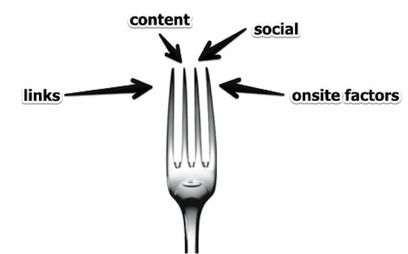




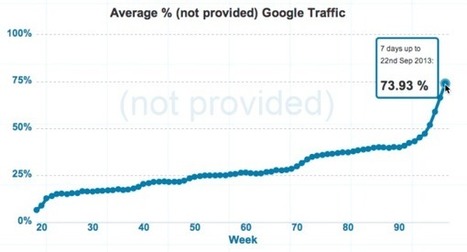

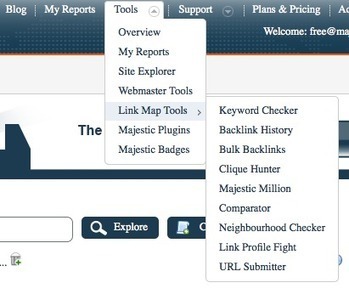



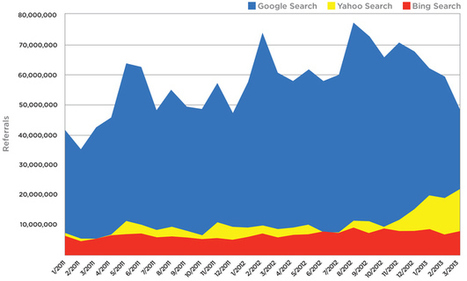


![SEO: Tweets Do Affect Rankings [Study] | Internet Marketing Strategy 2.0 | Scoop.it](https://img.scoop.it/ybeNosXqFKeqNzzs-BHvwTl72eJkfbmt4t8yenImKBVvK0kTmF0xjctABnaLJIm9)

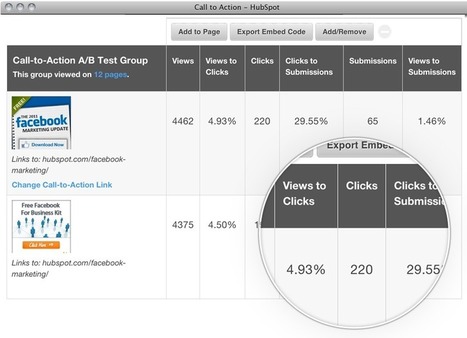
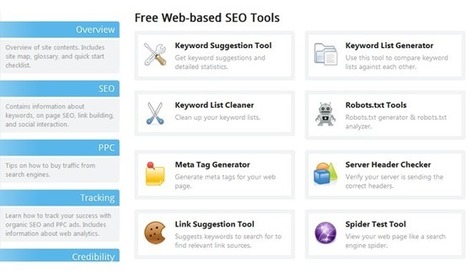

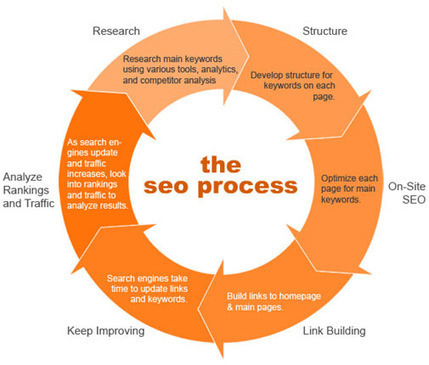



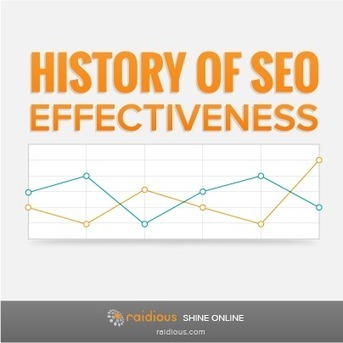


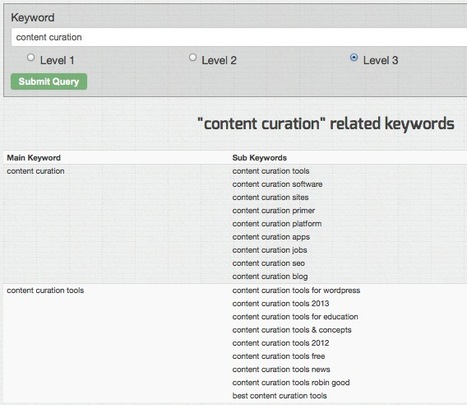
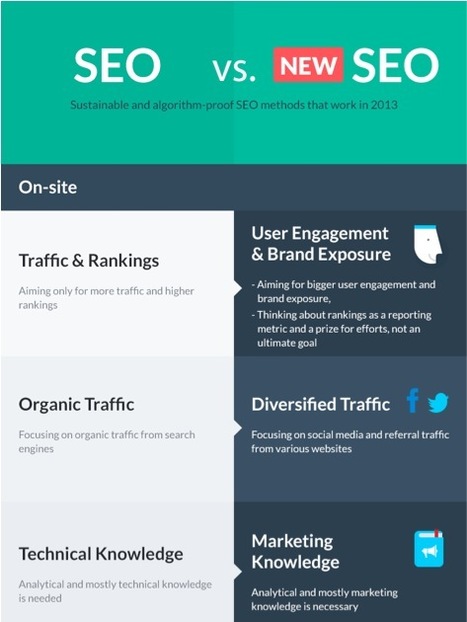


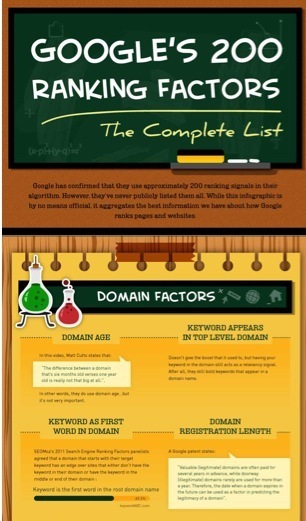



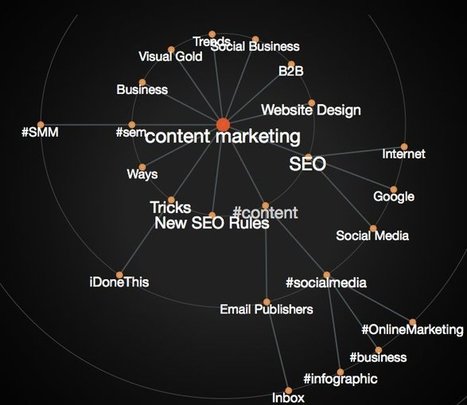


![SEO for Facebook Pages [Video] | Internet Marketing Strategy 2.0 | Scoop.it](https://img.scoop.it/9RpycVG0QXInkfp3MtXOODl72eJkfbmt4t8yenImKBVvK0kTmF0xjctABnaLJIm9)

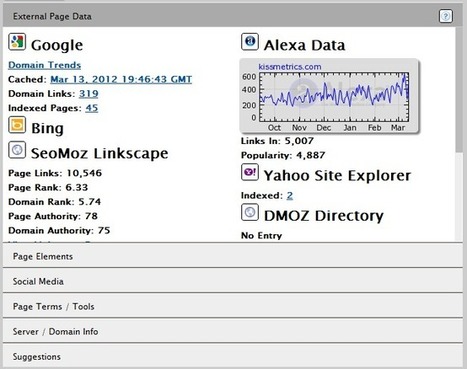
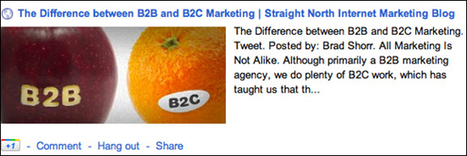
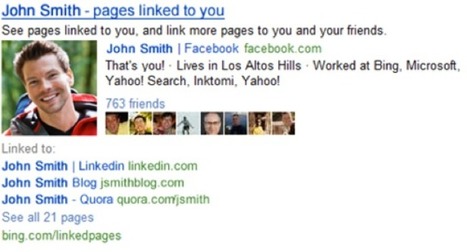





While SEO experts keep saying that "search engine optimization" is not dead, it's only changing, I am quite happy to see that more and more of the SEO techniques that have been promoted as the "smart" way to make anyone web site more visible, are finally crumbling down one by one.
In this excellent article, Neil Patel, identifies five of them, that carry more big risks than benefits for anyone web publisher still adopting them. These are:
1) Guest Blogging (spammy kind)
2) Incoming Links with Optimized Anchor Text
3) Low quality inbound links
4) Using lots of relevant keywords inside your content
5) Relying more on building inbound links than on creating high-value content
Excellent recommendations for anyone publishing online. It's time for those who have quality ideas and content to regain their due value and visibility, stolen for so long by those who, without either one, invested fanatically in content marketing and search engine optimizing without ever creating real value.
Useful. Informative. 8/10
Full article: http://www.quicksprout.com/2014/03/28/5-seo-techniques-you-should-stop-using-immediately/